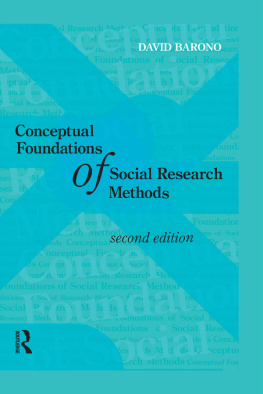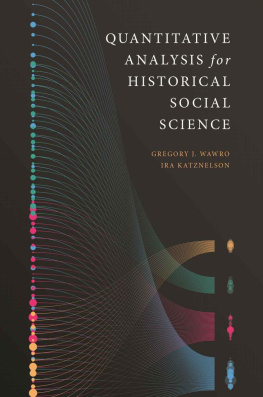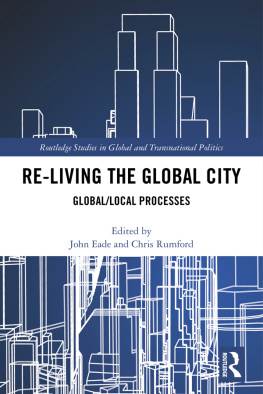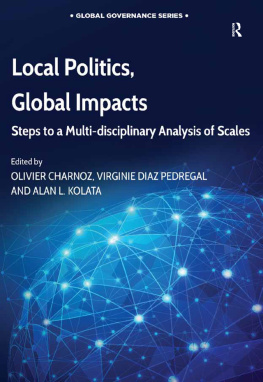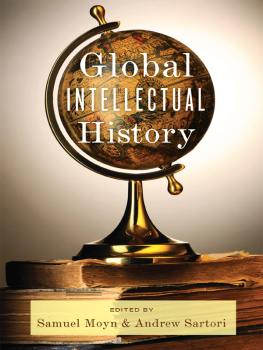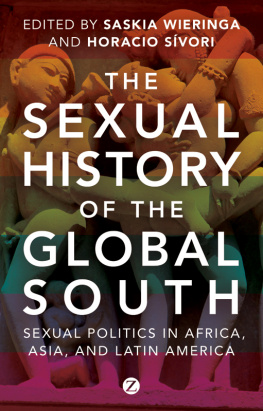An enormously ambitious and wide-ranging work which cuts across traditional and conventional academic subject divisions. It develops a large and important argument which constitutes a significant original contribution to social theory. Clear and readable. Highly recommended to anyone interested in critical social thought.
Sean Sayers, Professor of Philosophy at the University of Kent Author of Marx and Alienation: Essays on Hegelian Themes
The current world-wide transformations from Egypt to Bolivia demand that we revisit the old debates on the global and the local with a renewed urgency. This is precisely the task that David Baronovs Dialectics of Inquiry takes on. Baronov inflects the global/local debate with concepts in the historical social sciences ranging from Hegel to contemporary poststructuralism. Looking at wide ranging sites ranging from the 1863 Draft Riots in New York to the AIDS crisis in Mozambique, Dialectics of Inquiry powerfully and lucidly argues that the local event in fact reconstitutes large scale social change. This is a book that will contribute immensely to our understanding of the historical social sciences, and will be of great value to scholars and graduate students.
Ravi Sundaram, Senior Fellow at the Centre for the Study of Developing Societies, Delhi, India
Author of Pirate Modernity: Delhis Media Urbanism
David Baronovs keen insight to the debate over structural determinism versus agency is nothing more than an invitation into the other salient debates of our time, including particularism versus universalism, idiographic versus nomothetic, science versus humanities, modernism versus postmodernism, the global versus the local, and historicism versus radical contingency. This well crafted analysis, while focusing on very particular historical events, will prove to be useful to a large variety of scholars. Social theorists of many persuasions will enjoy the texts handling of a mixed variety of intellectuals. Researchers across historical sociology, especially within world-systems analysis will benefit from the imaginative ways the text overcomes the debate of holism versus particularism. And historians and anthropologists who are interested in thick and deep narratives will find that they too can have their cake and eat it while gaining an appetite for a structuralist entree.
Khaldoun Samman, Associate Professor of Sociology at Macalester College
Author of The Clash of Modernities: The Islamist Challenge to Jewish, Turkish, and Arab Nationalism
Baronovs work is critical for capturing the dialectic of the historical subject within long-term, large-scale historical accounts which remains a profound dilemma for historical sociology today. As Baronov has so eloquently captured it, his study not only tells, but also shows, how one can foster a dialectical method that places human agency at the heart of long-term, large-scale history making.
Mohammad H. Tamdgidi, Associate Professor of Sociology, UMass Boston
Author of Advancing Utopistics: The Three Component Parts and Errors of Marxism
Baronov develops a highly innovative angle of vision that cuts the Gordian knot of the historical social sciences. His creative use of concrete historical instances to reposition basic precepts within historical sociology provides historical social science with a radical new conceptual landscape for analysis. He overturns many basic assumptions and opens promising new avenues supplanting the categorical opposition and enigmatic relation of structural determinism and individual agency with a dynamic, reflexive understanding.
Mehretab Abye Assefa, Associate Professor of Sociology at St. Lawrence University
The Dialectics of Inquiry Across the Historical Social Sciences
This book turns conventional global-historical analysis on its head, demonstrating, first, that local events cannot be derivedlogically or historicallyfrom large-scale global-historical structures and processes and, second, that it is these structures and processes that, in fact, emerge from our analysis of local events. The grounds for such claims follow from the authors analysis of several disparate events, including the New York City Draft Riots, AIDS in Mozambique, and a 2007 flood in central Uruguay. In each case, Baronov chronicles how expressions of human agency at the level of those caught up in each event give form and substance to various abstract global-historical conceptssuch as slavery in the Americas, global capitalist production, and colonial/postcolonial Africa. Underlying this repositioning of the local and the ephemeral is an immanent phenomenological analysis that illustrates how mere transient events are the progenitors of otherwise abstract global-historical concepts. Traversing the intersections of human agency and structural determinism, Baronov deftly retains the nuance and serendipity of everyday life while deploying this nuance and serendipity to further embellish our understanding of those enduring global-historical structures and processes that shape large-scale, long-term historical accounts of social and cultural change across the historical social sciences.
David Baronov is professor of sociology at St. John Fisher College, where he remains mired in the muck at the intersections of ephemeral everyday events and long-term global-historical trajectories. Recent publications include The African Transformation of Western Medicine and the Dynamics of Global Cultural Exchange and a second edition of Conceptual Foundations of Social Research Methods.
Routledge Studies in Social and Political Thought
For a complete list of titles in this series, please visit www.routledge.com.
51 Deconstructing Habermas
Lasse Thomassen
52 Young Citizens and New Media
Learning for Democratic Participation
Edited by Peter Dahlgren
53 Gambling, Freedom and Democracy
Peter J. Adams
54 The Quest for Jewish Assimilation in Modern Social Science
Amos Morris-Reich
55 Frankfurt School Perspectives on Globalization, Democracy, and the Law
William E. Scheuerman
56 Hegemony
Studies in Consensus and Coercion
Edited by Richard Howson and Kylie Smith
57 Governmentality, Biopower, and Everyday Life
Majia Holmer Nadesan
58 Sustainability and Security within Liberal Societies
Learning to Live with the Future
Edited by Stephen Gough and Andrew Stables
59 The Mythological State and its Empire
David Grant
60 Globalizing Dissent
Essays on Arundhati Roy
Edited by Ranjan Ghosh & Antonia Navarro-Tejero
61 The Political Philosophy of Michel Foucault
Mark G.E. Kelly
62 Democratic Legitimacy
Fabienne Peter
63 Edward Said and the Literary, Social, and Political World
Edited by Ranjan Ghosh
64 Perspectives on Gramsci
Politics, Culture and Social Theory
Edited by Joseph Francese
65 Enlightenment Political Thought and Non-Western Societies
Sultans and Savages
Frederick G. Whelan
66 Liberalism, Neoliberalism, Social Democracy
Thin Communitarian Perspectives on Political Philosophy and Education
Mark Olssen
67 Oppositional Discourses and Democracies
Edited by Michael Huspek
68 The Contemporary Goffman
Edited by Michael Hviid Jacobsen
69 Hemingway on Politics and Rebellion
Edited by Lauretta Conklin Frederking


